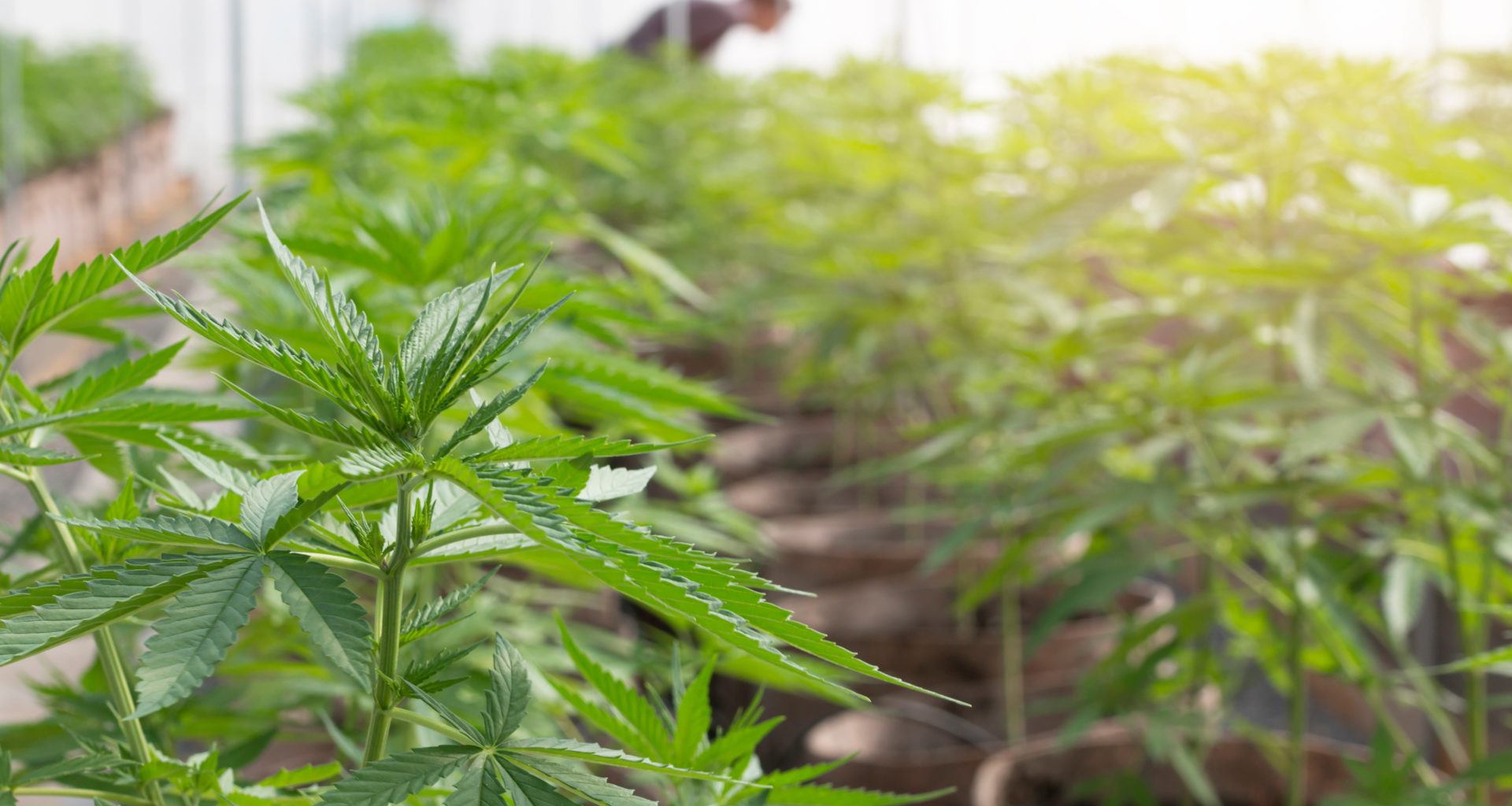Michael Spath of Kapnick Insurance discusses the unique coverage considerations for the cannabis industry with business insurance and employee benefits experts, Rama Gupta and Adam Blitchok. Here are highlights from that conversation.
Tune in below to listen to the full conversation:
Michael: Hey, welcome to the Ask The Experts segment here with Kapnick Insurance, and I am Michael Spath of Kapnick Insurance filling in for Jeff Sloan. Joining us from the cannabis practice at Kapnick Insurance Group is Rama Gupta and Adam Blitchok.
Gentlemen, cannabis is everywhere. I feel like there are more cannabis operations than liquor stores now in the state of Michigan, they feel like every block I come down, there’s another one and another one and another one.
So let me ask both of you guys from an insurance standpoint, how is cannabis like any other business and how is it different than any other business?
Rama: Thanks, Michael. Great question. It’s similar to any other business, you’ve got a customer and you’ve got a product you’re selling. So what’s important? It’s the customer experience, the customer service and you find value, pleasure, or joy out of whatever it is that you’re getting there, whether it’s a service or product.
So what we’re really seeing is a lot of stores creating a customer experience. It almost feels like you’re walking into an Apple store. You’re greeted by somebody, you have that person that’s there with you, answering your questions. It’s almost like they’re consulting with you to help guide you to the best fit.
The differences are, there’s a lot more regulatory compliance and administrative burdens that go wrong along with running that business. Also, it’s sometimes hard to find talent, or employees.
Adam: Obviously, the biggest difference is it’s federally illegal. I mean, that’s the elephant in the room. Right?
And you mentioned the number of dispensaries. It’s not just people smoking. You gotta think about the amount of edibles, gummies, all the ancillary products. I mean, it’s a gigantic business.
What we see a ton of right now, because it’s so saturated, is a huge consolidation. So you have really big players, jumping into the fray. What they’re able to do is produce product at a really high volume, which drives the cost down. So a lot of the smaller guys aren’t able to survive on those really small margins because they’re making no money, because everything’s driven down.
If we go back to the question about how it’s similar, anytime you’re paying employees, you’re going to run into issues. People aren’t going to show up to work. People are going to quit. People are going to call in sick. People are going to be unhappy with their compensation plan. So it’s really the challenges of any normal business on top of the federally illegal aspect.
Michael: Well, let’s talk about that. The fact that it is at least nationally, it is not legal. It is state by state. And so because you have a state by state situation, when it comes to insurance, Rama, there are some challenges in terms of finding the right market to place with a dispensary, to place with a grower, to place with a distributor, because you maybe don’t have the depth of insurance companies that are in that space. Is that not true?
Rama: Oh, that’s a hundred percent accurate. They need the SAFE Banking Act to pass. Right now, there’s a lack of competition, so prices are higher and, really with running a cannabis business, everything costs more than a regular business.
You don’t have any of the federal tax advantages that a normal business would have. And from the insurance standpoint, there’s not very many carriers participating in the space. So, you’ve got products that cost more and cover less.
Michael: Well, you just made a very appealing argument for staying away from it, but a lot of people are getting into it.
And so Rama, this is where Kapnick comes into play. You just brought up a lot of things that could be challenging for a dispensary owner. What can Kapnick help that person do? To drive down some costs to, to make sure that they’re covering the broad spectrum of exposures that they potentially have running one of those operations.
Rama: That’s a great question. With many of the cannabis companies, they have an explosive rate of growth. So, where we see issues pop up often is they haven’t put the best business processes and systems in place.
We’re seeing a higher incidence of employment practice claims, due to discrimination, sexual harassment. Those are issues that plague any regular business, especially in today’s day and age, but it’s more prevalent here.
Michael: Adam, let me ask you this question, because he’s bringing up employees and you deal with that side of the house, the employee benefits and working with businesses to attract that top talent. How does Kapnick help create an experience by helping to attract the right type of talent to these operations?
Adam: Well, I think first and foremost, what I’ve done specifically, is immerse myself in some of these businesses. I visited their plants or their processing facilities. And the No. 1 thing I’ve found regardless of size and growth is that most people got into it initially, because they had some love or appreciation for the plant. Where the disconnect comes in is if you’re working in a processing facility or any kind of large-scale operation. It very much is similar to a factory job. So you’re not smoking weed, listening to Bob Marley eight hours a day, you’re on your feet doing manual labor.
And I think helping to educate and then provide benefits to keep those people around doing jobs that are tedious. They can be very rewarding. And I think the people that own those companies truly believe in what they’re doing, but we’ve gotta find a way to connect. Keep the employees engaged. Benefits is one way to do that.
Michael: Is there a threshold as they’re growing, to engage with someone like yourself at Kapnick that handles employee benefits to say, hey, you’re getting so big, so fast. Like this needs to be part of your business plan. This needs to be part of what you’re doing to attract that and retaining those right type of employees.
Adam: I think size is less important than philosophy. Like, what is going to be your philosophy? What’s gonna drive your company forward?
And if it’s going to be rewarding and taking care of your employees, the earlier you start the better, I mean, that’s what we found.
Rama: Back to the initial question, ’cause I don’t feel like I answered it fully.
What we do is help companies as they’re growing or as they stand at this exact moment, we go through and help them identify and make sure they’re aware of all the known and unknown risks and make sure they’ve had all of the solutions presented to them so they can make their most educated decisions regarding how they want to manage the risk within a company.
Michael: Let me ask you this question, Rama, because one of the things that, and maybe you can correct me here, but I look at it as like three different lines here. You’ve got growers, you’ve got maybe distributors and then you’ve got the actual dispensaries. Is that right? Am I missing any particular vertical in this field?
Rama: The only thing I would maybe add to that is you’ve got the grow, processing, manufacturing, provisioning or dispensing, and then the secure transporters, which are the distributors. And then you’ve got the testing laboratories as well.
Michael: OK. I guess my question is each of those are going to have different insurance needs than just the dispensary, like the grower’s going to have different insurance needs than the transportation than the testing facility. How important is it? I mean, that’s one of the things that I really appreciate about working at Kapnick is that there’s no one-size-fits-all type of thing, right?
Rama: Yeah, absolutely.
I mean, at the core, each one of those operations wants to protect their people, their property, their profitability. So you’re right, each one has different needs. If you are a secure transport, commercial auto is going to be your biggest heartburn, as a grower, your facility and the grow rooms and all the equipment you have there that all needs to be insured properly.
And you want to make sure your security systems are in place and whatever protective things like sprinklers, those are all things that go into making sure you don’t have a loss. And then, when you’re a manufacturer or processor, you’ve got really, really expensive equipment. You’ve got millions of dollars of equipment that needs to be covered.
Michael: That is what again, why it’s great to engage with a Kapnick cannabis specialty advisor, such as Rama here, and Adam.
Gentlemen, what is next? I mean, you talked about really early on federal legislation. Do we see that coming? Is there a time line for this? And if you are a cannabis operation right now, what’s the future of cannabis here in the next couple of years that you really just need to be paying attention to?
Adam: So in my opinion, the last domino to fall to cause it to be federally regulated will be the banks, because the banks are going to want to finance some of these large operations.
There’s a ton of money to be made. The problem is right now, the federal government is getting a ton of cash from these places, ’cause they still pay taxes. There’s just no tax breaks. So in my opinion, from the federal government standpoint, it’s like, why ruin a good thing? We get truckloads of cash every year. Why change it? And what’s going to push that over is the people that are involved with the government who are also involved in banks wanting some of that action, in my opinion.
Rama: I definitely can’t put a time line on it, but I would say within the next three to five years, it’ll probably pass federally, but, really what’s next if you’re currently in the space and you’re not already thinking about your exit plan, you need to be thinking about that because as soon as it goes federally legal, the big dogs are going to come in and either just dominate the space as we’re already kind of seeing with the multistate operators and the vertically integrated companies. The margins are shrinking for the mom and pop or the one or two location provisioning centers or the smaller grows.
So really you need to be thinking about the exit plan: Are you going to sell, are you gonna partner as part of a roll up? You’re either going to be squeezed out or you need to partner with a bigger entity.
Michael: All right. Great stuff, guys.
You can learn much more about Kapnick going to kapnick.com and in our cannabis practice group, reach out to Rama Gupta on the property and casualty side and Adam Blitchok on the employee benefit side. Gentlemen, thanks very much for joining us here today on Ask The Experts.
Rama: Thanks, Michael.
Adam: Thanks, Michael.







